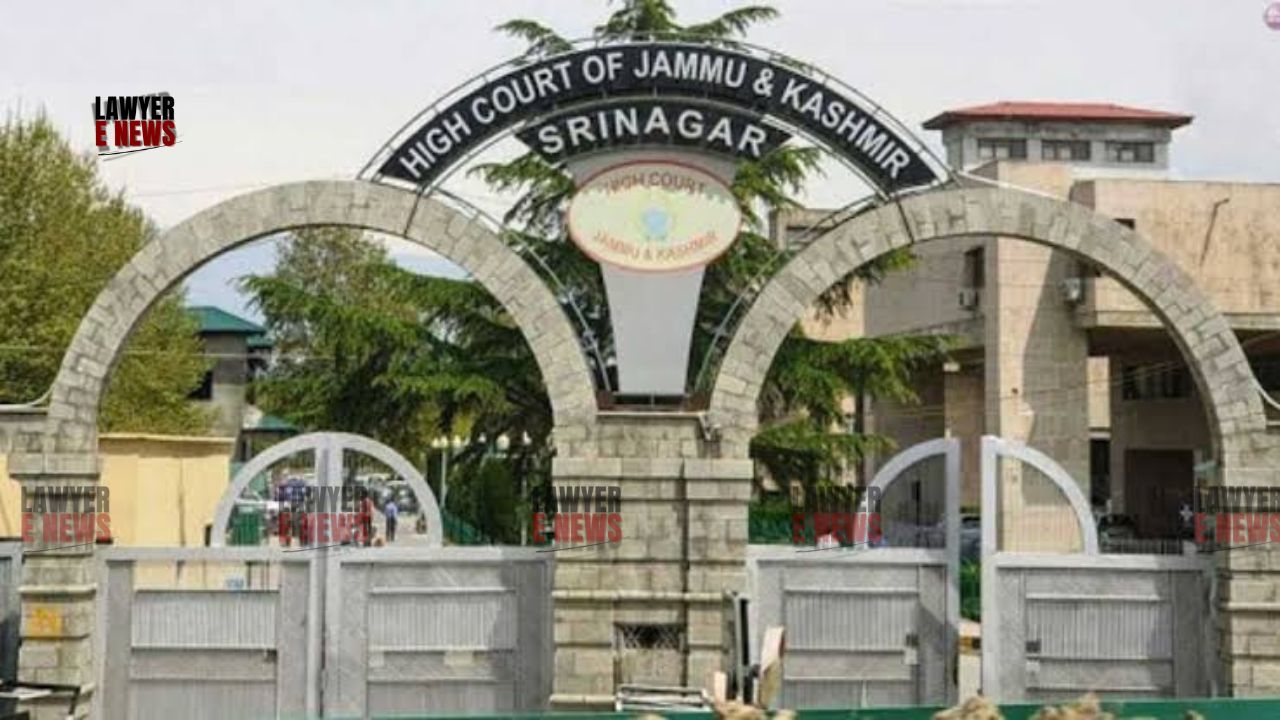-
by Admin
15 February 2026 2:36 AM



High Court of Jammu & Kashmir and Ladakh, in a landmark ruling, quashed the imposition of service tax at the rate of 12.36% on proof testing charges for shotguns manufactured in Jammu & Kashmir. The Division Bench, comprising Hon’ble Chief Justice Tashi Rabstan and Justice M.A. Chowdhary, held that the levy violated Section 64 of the Finance Act, 1994, which expressly excludes the applicability of service tax in Jammu & Kashmir. Moreover, it declared that the proof testing charges constituted statutory fees for sovereign functions and therefore fell outside the purview of service tax.
The judgment settles a longstanding dispute between gun manufacturers, including M/S Khair-ud-Din & Sons and M/S Friends Company, and the Union of India, regarding service tax liability for proof testing services provided by the Ministry of Defence.
“Finance Act Does Not Extend Service Tax to Jammu & Kashmir”
At the core of the dispute was the petitioners’ contention that the Finance Act, 1994, under Section 64, explicitly excludes the applicability of service tax in Jammu & Kashmir. The Court unequivocally agreed with this position, stating:
"Section 64 (Chapter V) of the Finance Act, 1994 excludes the applicability of the service tax to the State of Jammu & Kashmir. Since the taxable services are consumed within the territorial limits of Jammu & Kashmir, no service tax liability arises on proof testing charges."
The respondents, however, argued that the services were performed outside Jammu & Kashmir (in laboratories in Kanpur and Jabalpur) and hence were subject to service tax under the Place of Provision of Services Rules, 2012. The Court rejected this argument, observing that service tax could not be imposed based on such externalities when the Finance Act explicitly exempted the state.
Proof Testing as a Sovereign Function: "No Service Tax on Public Safety Measures"
The Court further clarified that proof testing of firearms is a statutory requirement under Rule 22 of the Arms Rules, 1962, carried out in the interest of public safety. The fees charged for this purpose, deposited into the government account, were statutory in nature and not taxable under the Finance Act.
"The proof testing of firearms is mandated by law to ensure public safety. Such activities, performed by sovereign or public authorities, are statutory duties and cannot be equated to services provided for consideration," the Court held.
The judgment referenced similar rulings, including the dismissal of an appeal by the Supreme Court in Commissioner of Central Excise, Bhopal v. CESTAT Final Order ST/26/2010 (2011), which dealt with the non-taxability of testing fees for gas cylinders under similar statutory provisions.
The Court relied on previous decisions of tribunals and courts, as well as government circulars, to reinforce its conclusions. It cited the Central Board of Excise and Customs’ Circular No. 96/7/2007-ST, which stated that fees collected by sovereign/public authorities for statutory functions are not taxable:
"Activities performed by sovereign/public authorities under the provisions of any law are statutory duties. Fees collected for such activities are not consideration for services and therefore do not attract service tax."
The Court also highlighted the analogy with gas cylinder testing under the Indian Explosives Act, 1884, where the CESTAT and Supreme Court held that mandatory statutory testing fees were not taxable.
The Court quashed the impugned communications that sought to impose service tax on proof testing charges. It directed the respondents, including the Ministry of Defence, not to levy, charge, or recover service tax from the petitioners. Additionally, the Court ruled that no interest liability arose as service tax itself was deemed inapplicable.
This judgment has significant implications for service tax liability on activities classified as sovereign functions. Key takeaways include:
Service Tax Exemption in Jammu & Kashmir: The Court reaffirmed that Section 64 of the Finance Act excludes Jammu & Kashmir from the service tax regime.
Statutory Functions Exempt from Tax: Proof testing of firearms, a statutory duty performed in public interest, was held to be non-taxable, extending the principle to other similar functions.
Precedential Value: The ruling aligns with CESTAT decisions and Supreme Court dismissals, setting a consistent precedent for similar cases across sectors.
Clarification on Sovereign/Public Functions: The judgment emphasizes that public safety measures mandated by law are sovereign functions, not commercial services subject to taxation.
Date of Decision: November 20, 2024
